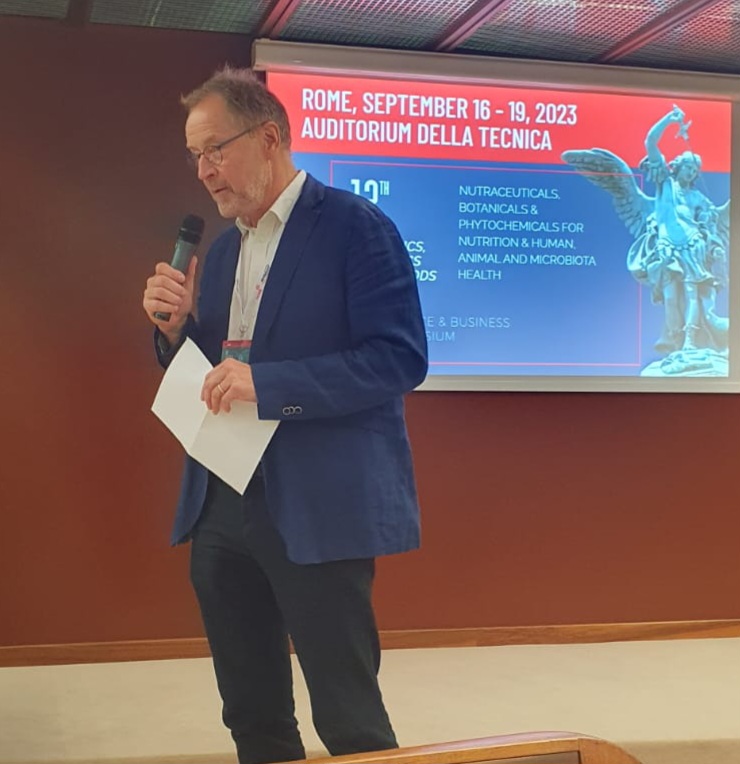Rome, September 18, 2023
IPA once again collaborated with the Congress in Rome, 12th Probiotics, Prebiotics, & New Foods. This year, the sessions covered important initiatives IPA has initiated.
Additionally, presentations took place, examining IPA’s new expanded scope, as the biotic revolution continues to advance.
Finally, regulations being everyone’s favorite topic during the IPA Europe session, topics in the realm and how these are evolving were explored.
The Biotics Session Talks
Prebiotics – Koen Venema, PhD University of Maastricht
Postbiotics: Simone Guglielmetti, PhD University of Milan
Next Generation Probiotics – Veera Krainulainen PhD University of Helsinki
Synbiotics – Caroline Childs, PhD University of Southampton
Public standards for the Probiotic industry
Testing and IPA work with ISO – Adrian Klijn PhD, Nestlé Institute of Food Safety and Analytical Sciences
IPA Europe Session
During this session we explored the dynamic landscape of probiotics in Europe, fueled by heightened consumer awareness of their health potential.
Introduction of IPA Europe by President Esben Laulund
The evolution of the European demand of probiotics: Can the EC meet the challenges ? IPA Europe presents the regulatory context in the European countries – Rosanna Pecere
How to bridge the gap between science and industry: EUFIC, the European Food Information Council, Debora Serra illustrates projects about nutrition and health with a focus on beneficial microorganisms and consumer perception
Opportunities by genome editing technologies for food cultures – Fabio Dal Bello, Scientific director, Sacco system, Chair of the Regulatory Working Group EFFCA
Probiotic and EC Regulation 2015/2283 on novel food: “How is a self evaluation made to realise if a probiotic culture is a traditional species?” Svend Laulund – Chr. Hansen
Closing remarks from the IPA Europe President Esben Laulund
The undeniable fact is that the demand for probiotics in Europe is continually evolving, driven by growing consumer awareness of their potential health benefits. Member States, as responsible authorities, must proactively address this trend by adapting regulations, supporting research and innovation, and ensuring that consumers have access to safe and effective probiotic products, ultimately contributing to improved public health and well-being across Europe and worldwide. Our association’s mission is to bridge connections among various stakeholders.

As Esben Laulund concluded: “A deep understanding of food culture and probiotics, coupled with the dissemination of accurate, impartial, and scientifically-grounded information, is paramount. However, there is a prevailing gap in the current landscape—an absence of a well-defined framework and terminology. Such a framework would benefit consumers and industry stakeholders alike, fostering the proper evolution of Europe’s food industry within a fair and competitive framework”.
IPA Europe is advocating for authorities at national and European level to come up with a proposition that will prevent probiotics from being automatically considered health claims. This is precisely what Member state authorities are doing at national level, in absence of a European framework.